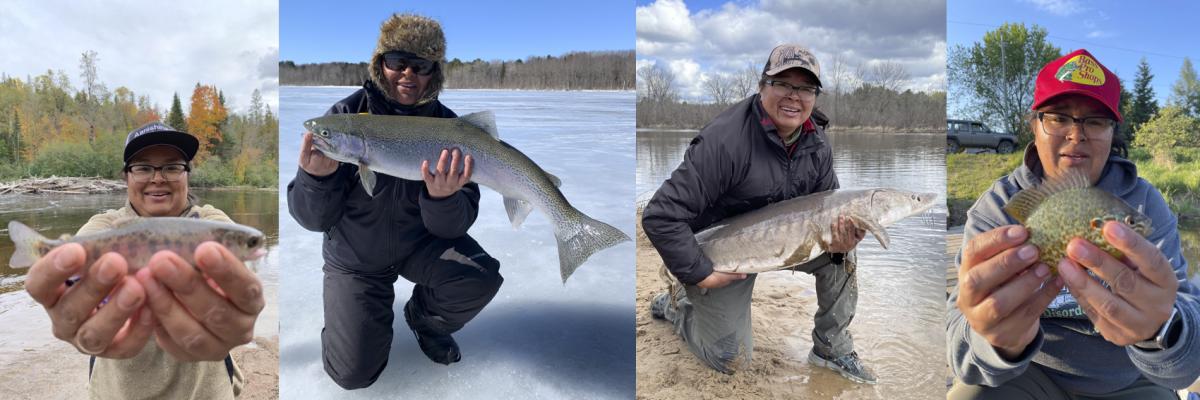Deborah Theresa Pine

Program
PhD Geography, Indigenous Graduate Scholar
Why did you choose to complete your graduate studies in your program at the University of Guelph?
My supervisor was highly recommended by my Masters supervisor and the program is well respected. I like the opportunity through the Conservation Through Reconciliation Partnership and the ability to have programs that operated in conjunction with a community of Indigenous experts. It is a way to combine the best of Indigenous knowledge and academic knowledge.
A bit about your path...
I completed my undergrad at Algoma University and my Masters at the University of Toronto. I had an opportunity to carry on to do my PhD at the University of Toronto but passed on the offer and decided to work. I had found full time employment a little outside my field but I was happy. There was institutional change and I didn't like that uncertainty. Also this combined with colleagues and friends that kept asking when I was going to "get" my PhD. So I reached out and was directed towards my supervisor Dr. Noella Gray. As much as I am grounded in family, community and Anishinaabe people, the other half of me is a theoretical, academic thinker. Ultimately this path is about honoring both of those sides of myself and then helping others however I can, everything always seems to have a way of working out for the best.
A bit about the work you are doing here...
My research is exciting because I will get to work with fluent Anishinaabe speakers. There is so much knowledge they carry in their language and it is a honor for that to be a part of the work that I get to do. I have always enjoyed the discipline of Geography and more importantly the land and water has framed how I know the world. In this way I get to combine two different but comparable knowledge systems, that have been treated historically unequal in a larger Canadian context. Understanding how an Anishinaabe worldview can inform mainstream conservation efforts is now relevant more than ever with the loss of biodiversity and climate change. Listening to what our Elders are saying has always been important to me personally but for it to be a part of my PhD is going to be incredible.
How do you think your research can potentially improve life?
I think my research can help communities advocate and use their own knowledge systems to manage traditional territories. But I also hope to inspire other Indigenous scholars to learn their languages for future generations.
What has the Indigenous Graduate Scholarship meant to you?
it was literally like a breath of fresh air. It's funny how financial support can give you more time to just dive into being an academic. It takes a load off your shoulders but also it is nice to be rewarded for your hard work. I think there are lots of hours people don't see, where you're just putting in hard work alone. The IGS makes me feel like the University of Guelph gets it and is willing to help Indigenous graduate students. My mother and all my grandparents went to residential school and those effects have dramatically impacted my family and their well being. Sometimes I feel like I "survived" my own family trauma so to have opportunities like this for other Indigenous students is critical. My parents never graduated college or university but they were so brilliant in other ways. So intelligent but did not have the opportunities to succeed and overcome all the racism of the past. I was lucky enough to be given enough goodness by them to succeed. It may have taken me longer than most to get here but I am super grateful for the IGS and how it impacts my daily life in a positive way.
Tell us something about you, beyond being a grad student...
I totally love learning Anishinaabemowin and being out on the water and land. I love to fish. I catch huge gigantic fish all the time and I come from a family that also loves fishing. I like being outside, I love winter.
Briefly describe what it is like to be a graduate student at UofG...
Pandemic times it is mostly like being at home in my basement, but I reach out and talk to my peers quite often and attend the online stuff that is applicable. After a semester I am used to it but it's like you're in your own head most of the time. We do labs on line and writing time online so that has kept me on track.